Hi, everyone!
Great news! We have a new Cate film (Pinocchio) to look forward to, which will be directed by Guillermo Del Toro. There’s also new UNHCR video released for World Humanitarian Day last August 19. On Mrs. America related news, the cast and creators conducted a virtual Q&A. Check the news and videos below.
Guillermo del Toro’s ‘Pinocchio’ Adds Cate Blanchett, Ewan McGregor, Tilda Swinton
Guillermo del Toro has cast Ewan McGregor, Tilda Swinton, Cate Blanchett, David Bradley and Finn Wolfhard in “Pinocchio,” his upcoming stop-motion animated musical feature for Netflix.
Newcomer Gregory Mann will star as Pinocchio, with McGregor as Cricket and Bradley as Geppetto. Other cast members include Christoph Waltz, John Turturro, Ron Perlman, Tim Blake Nelson and Burn Gorman.
“After years of pursuing this dream project, I found my perfect partner in Netflix. We have spent a long time curating a remarkable cast and crew and have been blessed by continuous support from Netflix to quietly and carefully soldier on, barely missing a beat. We all love and practice animation with great passion and believe it to be the ideal medium to retell this classic story in a completely new way,” del Toro said on Wednesday.
The film, first announced in 2018, will be set during the rise of fascism in Mussolini’s Italy during the 1930s. It tells a story of love and disobedience as Pinocchio struggles to live up to his father’s expectations.
The film is directed by del Toro and Mark Gustafson from a script by del Toro and Patrick McHale. The song lyrics are by del Toro and Katz, with music by Alexandre Desplat, who will also write the score. Gris Grimly created the original design for the Pinocchio character.
“Pinocchio” is produced by del Toro, The Jim Henson Company’s Lisa Henson, ShadowMachine’s Alex Bulkley and Corey Campodonico, and Exile Entertainment’s Gary Ungar. It’s co-produced by Blanca Lista of The Jim Henson Company and Gris Grimly. Principal photography began last fall at ShadowMachine’s Portland studio, and production has continued uninterrupted during the pandemic.
Set during the rise of Fascism in Mussolini’s Italy, PINOCCHIO — a musical directed by del Toro and Mark Gustafson (FANTASTIC MR. FOX) with a score by Alexandre Desplat — is a story of love and disobedience as Pinocchio struggles to live up to his father’s expectations.
— NetflixFilm (@NetflixFilm) August 19, 2020
Female ambition takes center stage with Cate Blanchett, Uzo Aduba and ‘Mrs. America’
The FX limited series “Mrs. America” tells the riveting story of the battle over the Equal Rights Amendment, but it is also a rich study of female power in its many complex permutations.
On one side of the drama is conservative activist Phyllis Schlafly (Cate Blanchett), whose ferocious professional drive and political power are at odds with the traditional values she espouses. On the other are second-wave feminist leaders including presidential candidate Shirley Chisholm (Uzo Aduba), whose White House aspirations made her a target of vicious criticism and even death threats.
“What really excited me about doing this show was putting forth a whole spectrum of women who are unapologetically ambitious,” says creator Dahvi Waller, “women who are not saying, ‘But I’m also a good mother!’ They’re just unapologetically seeking agency and political power — I wanted young women to see that. I really feel like that’s what’s missing from television: those kind of women.”
Waller was joined in a video call by three other women who contributed to “Mrs. America” in key ways: Blanchett, Aduba and Brenda Feigen, the pioneering feminist lawyer who was played in the series by Ari Graynor.
Blanchett, who was also an executive producer, wasn’t deterred by the thought of playing Schlafly, who remains an influential, deeply polarizing figure in American politics four years after her death and serves as the drama’s antihero. “It’s not my job to like or dislike a character. Nor do I think that women need to be nice to be interesting or watchable,” she says. Instead, the Oscar winner was excited to be part of a project that asked, as she puts it, “What is so scary about the notion of equality?”
“Even though this is set back in the 1970s, it was ‘Groundhog Day’ all throughout the making of the series,” she continues, citing fetal heartbeat bills restricting abortion passed in several states last year. “You hope in a way that it’s a museum piece that you’re making, … but this conversation is happening right now. That’s my takeaway from it: how little the discourse has changed.”
Indeed, the women gathered virtually the very afternoon that presidential candidate Joe Biden announced Sen. Kamala Harris as his running mate, following weeks of feverish and often sexist debates about who was right for the job. By joining the ticket, Harris achieved a historic milestone for Black and South Asian women that was arguably made possible by Chisholm’s 1972 campaign.
“Mrs. America” resonated the way it has because it came out amid multiple crises, Aduba says, “when America is being forced to face itself and to clear its air. And, of course, in the midst of this we are having the announcement of a vice presidential candidate who is a woman. There’s going to be yet another moment where America is going to be asked to confront itself.”
The episode “Shirley” shows the painful lack of support Chisholm received from white feminists and Black male politicians during her primary run, in which she was beaten by the more “electable” George McGovern. Nearly 50 years later, what Chisholm believed was possible — a woman president — has yet to come to fruition.
Characters such as Chisholm and Bella Abzug, played by Margo Martindale, “were all women with aspirations,” Aduba says. “And it just begs the question, for me: Had they not had that limitation of being an ambitious woman, having that label slapped on them, who could these women have been?”
“I have felt it as a Black woman — that there is an amount of ambition that is carved out for you and there’s a way in which you’re meant to express it, and if you say it any other way, you are looked at as angry — that angry Black woman trope is a real thing — or expecting too much too soon. But to borrow from AOC [Alexandria Ocasio-Cortez], do it anyway.”
Waller channeled her experiences as a woman in a male-dominated industry into “Mrs. America.” Dialogue from the episode “Jill,” about Republican feminist Jill Ruckelshaus (Elizabeth Banks), was inspired by a vexing conversation she’d had with a male showrunner who seemed baffled by Waller’s belief that women should make up half the writers in the room (she was the only woman on that particular staff).
“He said, ‘What? You’re not going to be happy until 50% of TV writers are women?’ And I said, ‘Yeah!’ And he thew his hands up in the air.” Another scene in which Schlafly is asked to take notes during a meeting with men was also taken out of Waller’s time in the writers room. “You were always the one asked to be writing on the whiteboard. Because, of course, a girl would have the neatest handwriting,” says Blanchett sarcastically. “That’s what you offer a writers room, isn’t it, Dahvi?”
The writers room for “Mrs. America” consisted of seven women and two men. As they were breaking an episode about a congressman sexually harassing his secretaries, Senate hearings were underway for Justice Brett M. Kavanaugh, making for “a very emotionally charged time in the writers room,” Waller says, recalling how the women once spent three hours sharing their #MeToo experiences in the industry. “We had some of the most uncomfortable and difficult conversations not only about gender, but about race and class and sexuality and the politics around that and how we were gonna represent that in the show. To have that space was really wonderful.”
“Argument is part of a democracy,” adds Blanchett. “You have to have robust discussion. Certainly that’s what I found playing Phyllis. She has a woeful distaste for nuance. You have to go through discord and debate and disagreement to get to nuance.” While the actress resisted judging her character, Blanchett concedes she found it isolating to play someone who brooked little dissent within her ranks — something she felt acutely when she’d watch dailies of ERA proponent actresses engaged in spirited discussions.
“I would feel so lonely,” she says. “It really drove home for me that I much prefer being in conversation rather than monologue.”
‘Mrs. America’ Cast and Creators on Portraying Historical Figures With Accuracy and Empathy
The cast and creators of the FX on Hulu limited series “Mrs. America” sought to bring the ’70s feminist movement and the fight surrounding the Equal Rights Amendment to the screen through exploring the personal motivations of its key players.
After a screening of the series’ third episode, “Shirley,” Variety‘s Kate Aurthur discussed the importance of portraying these figures with accuracy and empathy with executive producer Cate Blanchett, who played Schlafly; creator, showrunner and executive producer Dahvi Waller; producer Tanya Barfield, who wrote the episode; Margo Martindale, who played Abzug; Uzo Aduba, who played Chisholm and Tracey Ullman, who played Friedan. (All of whom have been nominated for Emmys.)
Blanchett said that although Schlafly’s beliefs were the opposite of her own, she felt drawn to the character out of a need to understand where she was coming from.
“I think, like a lot of people, I was reeling from the process and the results of the 2016 election in America, and wanted to understand how we’d got to a point where women seemed to be voting against their own self-interest,” Blanchett said. “I wanted to know what made her tick, and I found that there was a terrifying need to be right, a profound need to make the world in her own image and a fear of change.”
Blanchett also found the subject matter deeply important to today’s political climate.
“I had this profound sense of living in Groundhog Day,” Blanchett said. “Every day we were on set, the words, the phrases, the situations that we found ourselves in as characters, seemed to be just literally mirroring the things that were happening in politics and society in America generally.”
Cate Blanchett and the ‘Mrs. America’ Team on Building a Bridge of Empathy
FX on Hulu’s “Mrs. America” used controversial conservative activist Phyllis Schlafly (a menacingly luminous and Emmy-nominated Cate Blanchett) as a pivot point for the show’s narrative, while building out a dynamite cast of players (including Emmy nominees Uzo Aduba, Margo Martindale, and Tracey Ullman) each of whom have their own respective episode to shine.
But few shine as brightly as Aduba, whose portrayal of Shirley Chisholm (the first Black woman elected to the United States Congress) is electric, particularly in her standalone episode, “Shirley,” written by Tanya Barfield. In it, Chisholm is committed to her presidential candidacy and disheartened by a feminist movement that cannot comprehend the importance of intersectionality.
Reviled by the left and revered by the right, Schlafly played a huge part behind the scenes in the rise of the Religious Right and actively worked to limit the quest for equal rights in America. Knowing her history set quite a challenge for the now Emmy-nominated Blanchett, but those divergent aspects of Schlafly’s character appealed to the actress.
“I’m not interested in presenting my own political beliefs or making work in my own image, Blanchett, who also served as an executive producer on the series, said. “It’s far more fascinating to inhabit people who think nothing like you, whose frames of reference are nothing like your own. You build a bridge of empathy, in a way, to to their experience.”
“What was revealed in the wake of the 2016 election was just how divided the country was,” she said. “You would speak to people in certain states, from certain socio-economic standing, certain sub-cultural groups, certain genders, and they would feel that the Obama administration had left them behind, had ignored them, that they felt outside of America and that their interests were not being represented. And I thought, ‘Well, how can you possibly say that when you’ve really been in power for several hundred years?’
Blanchett continued, speaking about the real and devastating schism happening in the country, and observing that Schlafly, too, was a grassroots outsider; so much so that it probably cost her the position in President Reagan’s cabinet she so longed for.
“I was interested in trying to find a way to be part of a conversation that built a bridge between what seemed to be polar opposites, whether they were polar opposites from a gender perspective or political perspective,” Blanchett said. “I think drama has the ability to do that. And I think our political discourse, not just in America, but globally, has become so divided that we can’t have nuanced conversations about things as important and as political as equality.”
Click the image below for the full video:
UNHCR Goodwill Ambassadors and Supporters send a message of solidarity to humanitarian heroes
You don't need superpowers to help save lives. ?
UNHCR Goodwill Ambassadors and Supporters send a message of solidarity to humanitarian heroes. ?#WorldHumanitarianDay #RealLifeHeroes pic.twitter.com/pbjwwexYWp
— UNHCR, the UN Refugee Agency (@Refugees) August 19, 2020
Source: Variety – Pinocchio, Variety, Los Angeles Times, Indiewire
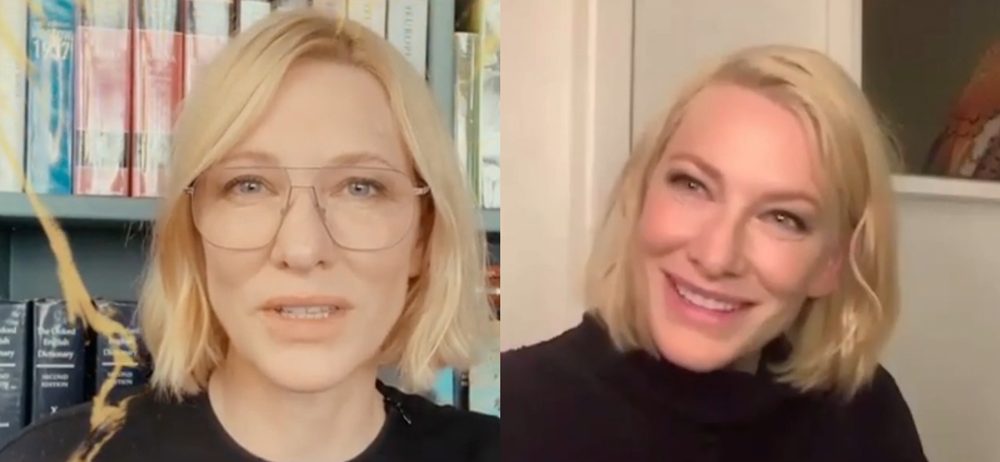
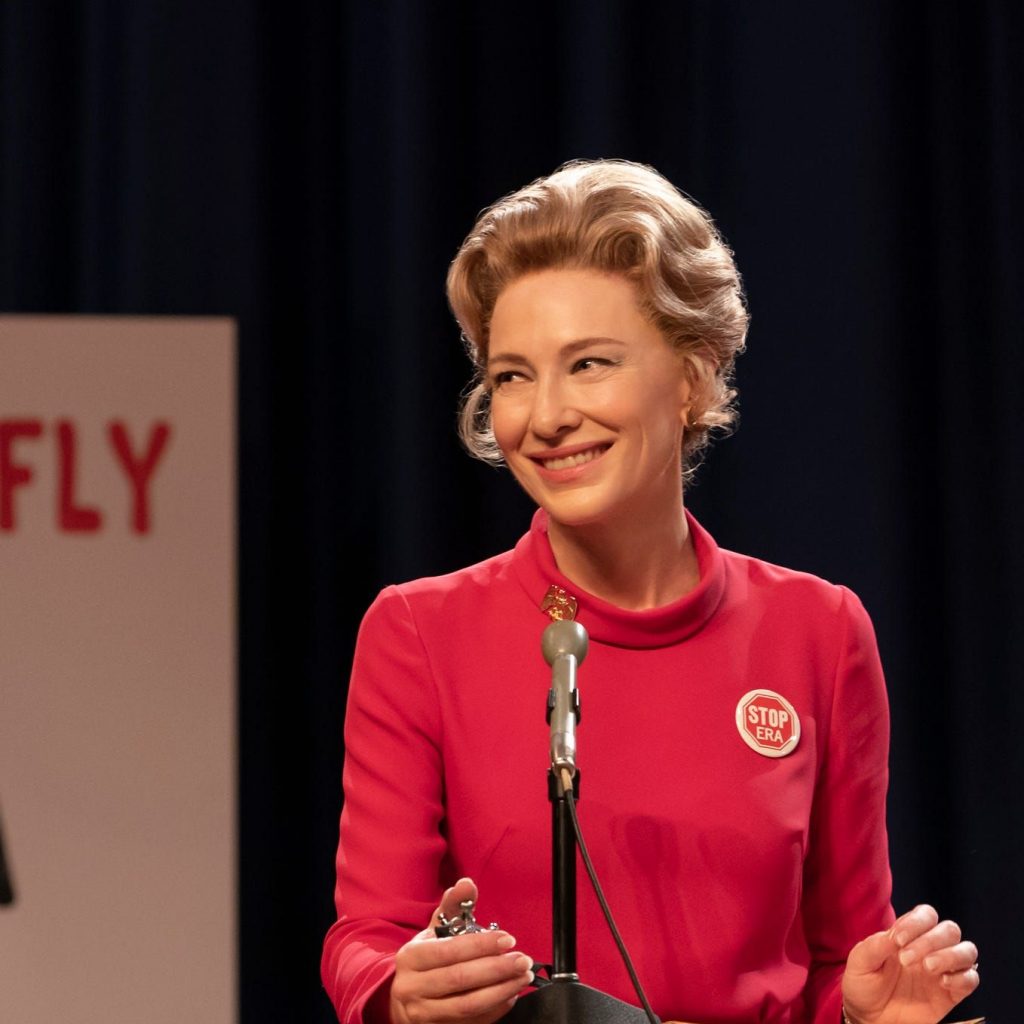
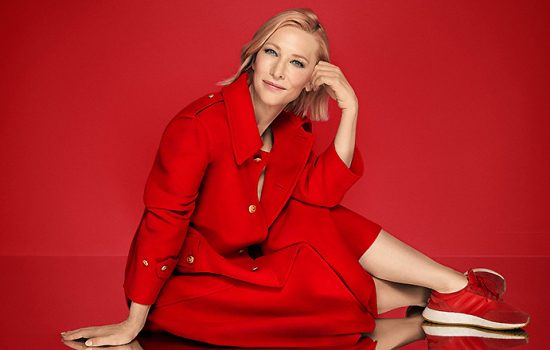
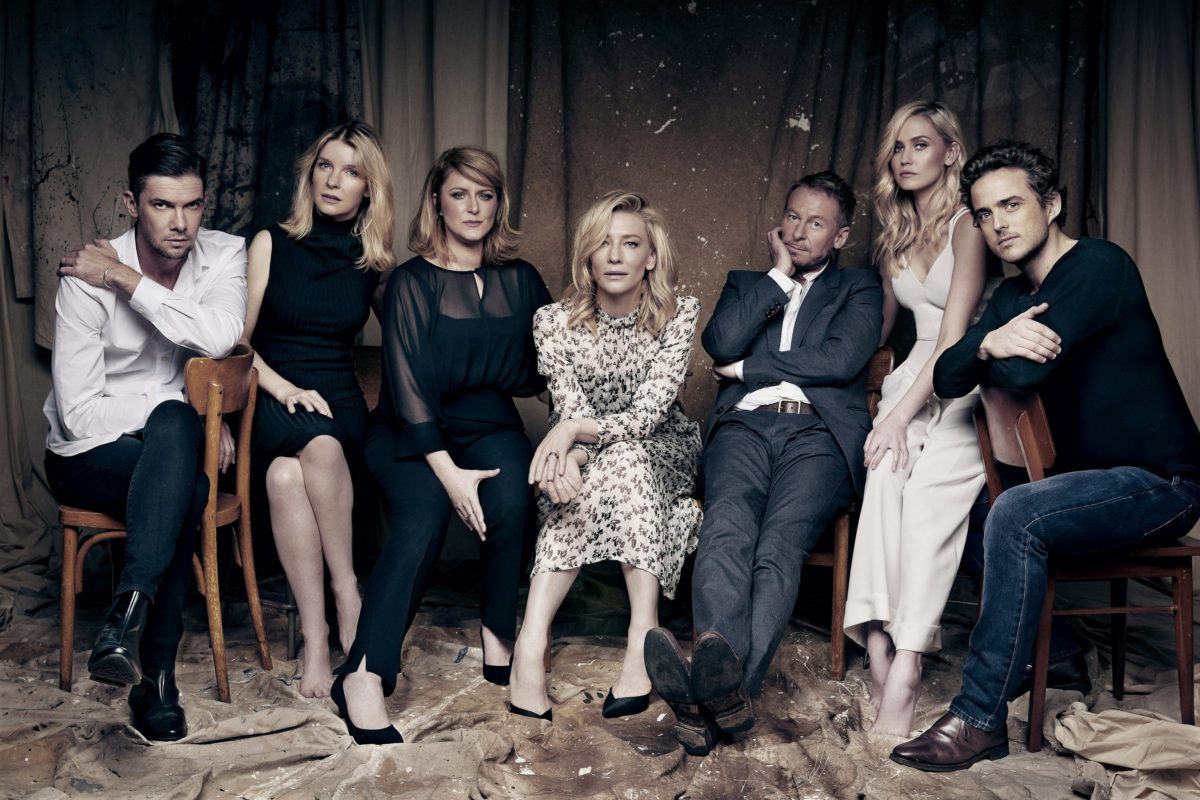
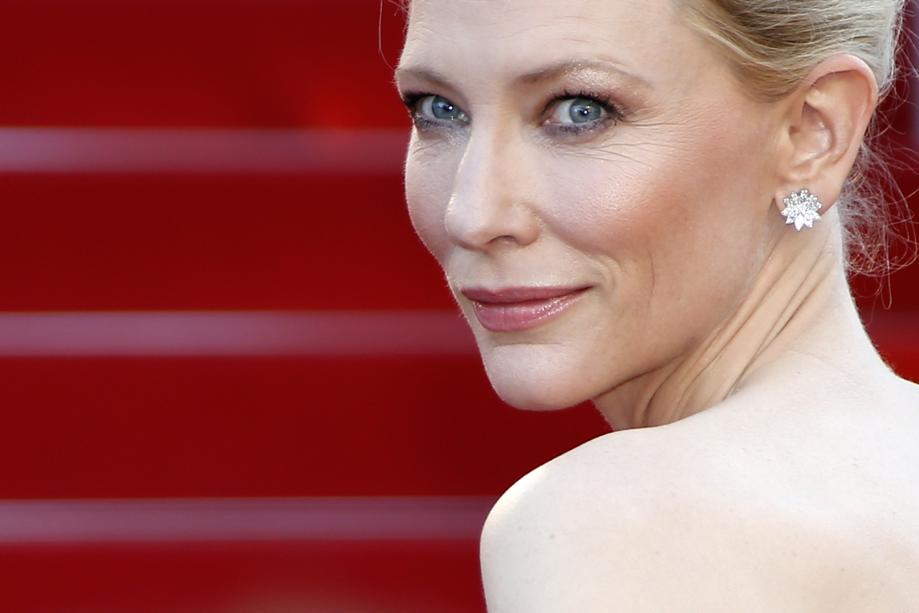

 A Manual for Cleaning Women (202?)
A Manual for Cleaning Women (202?) Father Mother Brother Sister (2025)
Father Mother Brother Sister (2025)  Black Bag (2025)
Black Bag (2025)  The Seagull (2025)
The Seagull (2025) Bozo Over Roses (2025)
Bozo Over Roses (2025) Disclaimer (2024)
Disclaimer (2024)  Rumours (2024)
Rumours (2024)  Borderlands (2024)
Borderlands (2024)  The New Boy (2023)
The New Boy (2023) 











